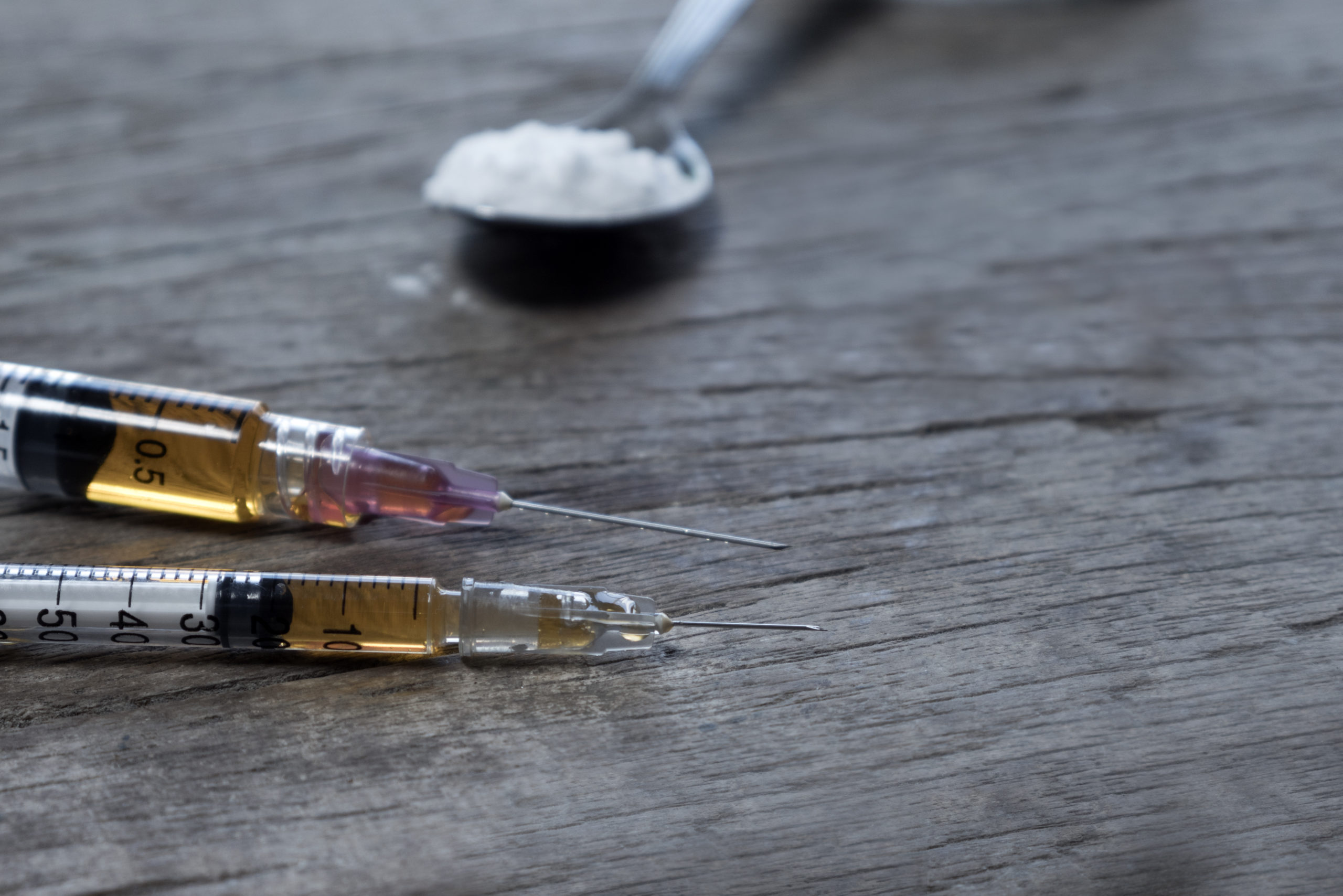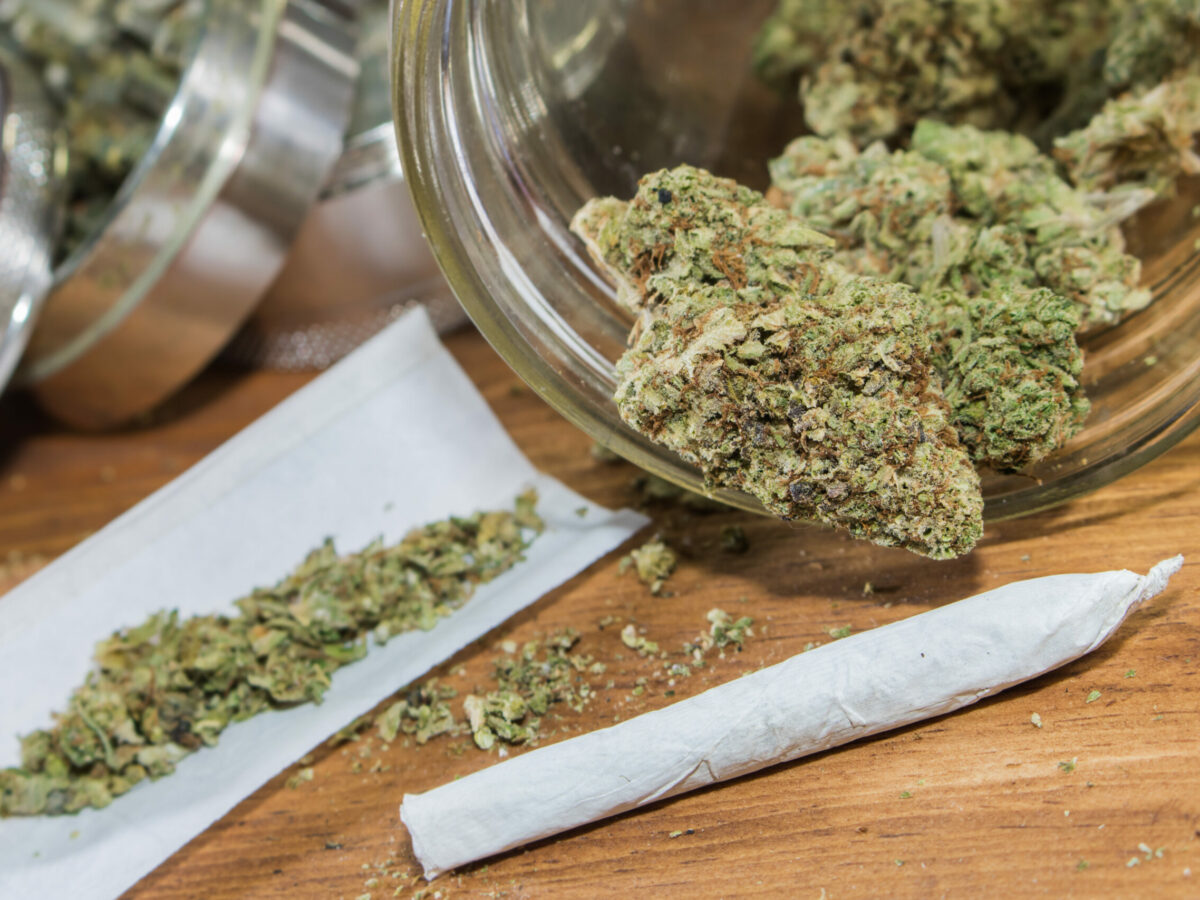A bill to lower criminal penalties for the possession of drug paraphernalia fell short in Maryland this week after the General Assembly opted to skip a vote to override a veto of the legislation.
On Monday morning, lawmakers convened for a special legislative session in Annapolis to approve new Congressional district boundaries and consider overrides of dozens of vetoes made by Republican Gov. Larry Hogan last spring.
Drug policy watchers were initially hopeful that lawmakers would try to overturn Hogan’s veto of Senate Bill 420, which would cut the maximum sentence for possession of needles, syringes or other drug-injection supplies from four years and a maximum $25,000 fine to one year and a $1,000 fine.
The legislation, introduced in January by Sen. Jill Carter of Baltimore City, sought to match the maximum penalties for possessing paraphernalia to those for possessing actual drugs. In 2016, the General Assembly reduced penalties for possession of most drugs to a maximum of one year in prison or a $1,000 fine with the Justice Reinvestment Act, which Hogan himself signed into law. But paraphernalia penalties weren’t changed accordingly, which has left an awkward gap in state law where possessing drugs is a lesser crime than owning the equipment to consume them.
SB 420’s odds of survival fell drastically this week after Senate President Bill Ferguson, a Baltimore Democrat, moved to “postpone indefinitely” on a veto override vote, which the Senate then approved.
In April, the House of Delegates had approved the paraphernalia bill in a 95-38 vote — safely above the three-fifths threshold that would have also protected it in a future veto override — but it fell one vote short of a veto-proof majority in the Senate, where it passed 28-19.
A glimmer of hope emerged for the measure’s supporters on Wednesday when Sen. Katherine Klausmeier of Baltimore County announced she had changed her stance on the bill and would vote “yes” on an override if it were reconsidered.
However, it appears her support came a day too late. As explained by reporters Hannah Gaskill of Maryland Matters and Bryan Sears of The Daily Record, Maryland Senate rules don’t allow lawmakers to reconsider a motion to postpone (or any other motion) once it’s been adopted.
“I appreciate the senator’s support but it’s a little too late,” Carter wrote in a message to The Outlaw Report. “Senate rules have effectively killed the bill. I look forward to her partnership in January when we reintroduce it.”
Sen. Carter and Montgomery County Del. David Moon, both Democrats, each filed paraphernalia decriminalization bills in their respective houses this year, and Carter’s bill ultimately made it to the governor’s desk. But Hogan vetoed SB 420 in May, calling it “dangerous” and arguing the bill “does nothing to remove drug dealers from our streets or reduce opioid-related fatalities.”
This week’s outcome for SB 420 was disheartening for local advocates of harm reduction, who had called for giving paraphernalia decriminalization another chance.
Moon told The Outlaw Report on Wednesday that elected officials on both sides of the aisle had agreed to reduce drug-possession penalties five years earlier, so failing to reduce paraphernalia penalties this week “just smacks of election-year games.”
“The folks who signed off on that logic are now twisting themselves into a pretzel to find a way to make some absurd, tough-on-crime argument in an election year,” Moon said.
Carter told The Baltimore Sun she was “heartbroken” over the procedural decision and similarly attributed the move to her colleagues having “hesitations voting for it in an election year because of the implications that you’re pro-drug abuse or something — which we’re not. It’s about saving lives.”
The Baltimore Harm Reduction Coalition (BHRC), a community-based nonprofit that provides public health services and advocates for harm reduction policies called the move to postpone an override vote “horrifying” in a statement posted on Twitter.
“This will have detrimental effects on our staff, volunteers, our peers in other programs, people we love and call family, and to all residents of Maryland,” BHRC said.
Ferguson told The Sun that the General Assembly will take the issue up once again in the upcoming 2022 legislative session, which begins on Jan. 12.
Moon said he expects he and Carter will again sponsor the legislation.
“I really hope we can get it done in the next year,” he said. “I think this story is not over yet.”



